Abstract
OBJECTIVE: To define qualitative research in terms of its philosophical roots, the questions it addresses, its methods and analyses, and the type of results it can offer. DATA SOURCES: MEDLINE and CINAHL (Cumulative Index to Nursing and Allied Health Literature) databases were searched for the years January 1985 to April 1998. The search strategy consisted of "textword" terms that searched in the "title" field of both databases. Qualitative research and evaluation textbooks in health and the social sciences were also used. QUALITY OF EVIDENCE: The information on qualitative research is based on the most recent and valid evidence from the health and social science fields. MAIN MESSAGE: Qualitative research seeks to understand and interpret personal experience to explain social phenomena, including those related to health. It can address questions that quantitative research cannot, such as why people do not adhere to a treatment regimen or why a certain health care intervention is successful. It uses many methods of data collection, including participant observation, case studies, and interviews, and numerous approaches to data analysis that range from the quasistatistical to the intuitive and inductive. CONCLUSIONS: Qualitative research, a form of research completely different from quantitative research, can provide important insights into health-related phenomena and can enrich further research inquiries.
Full text
PDF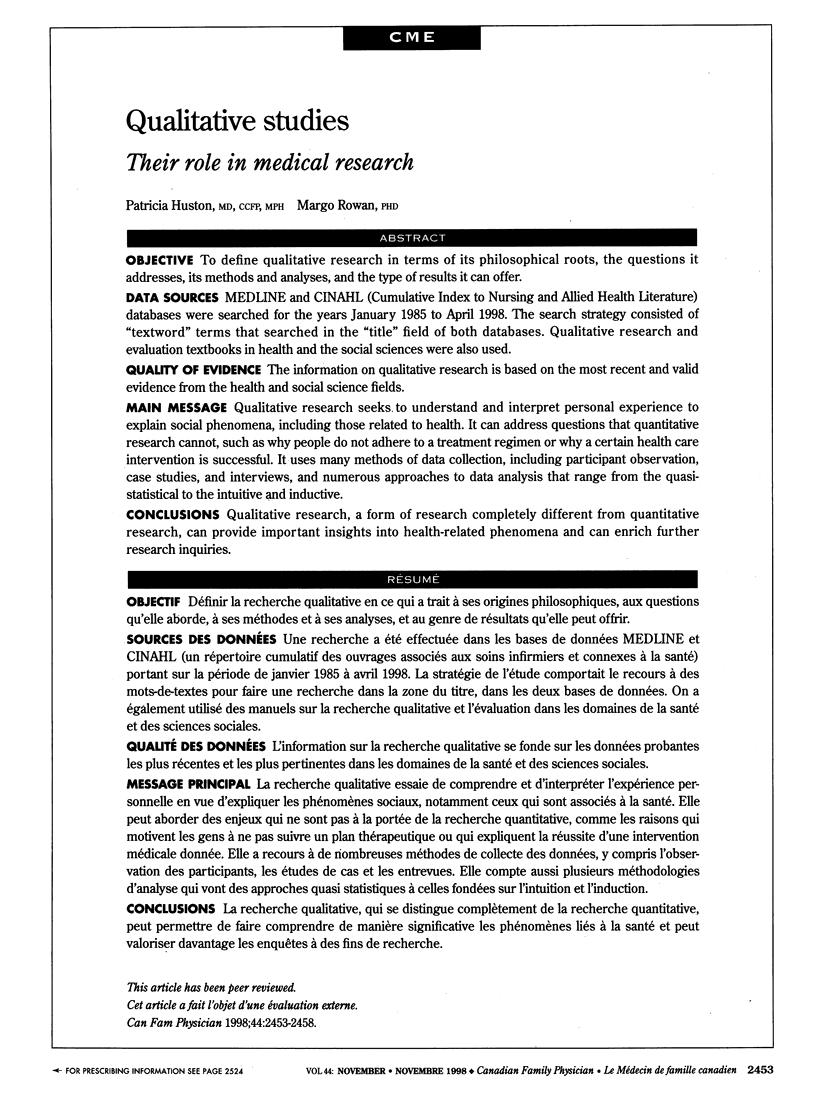
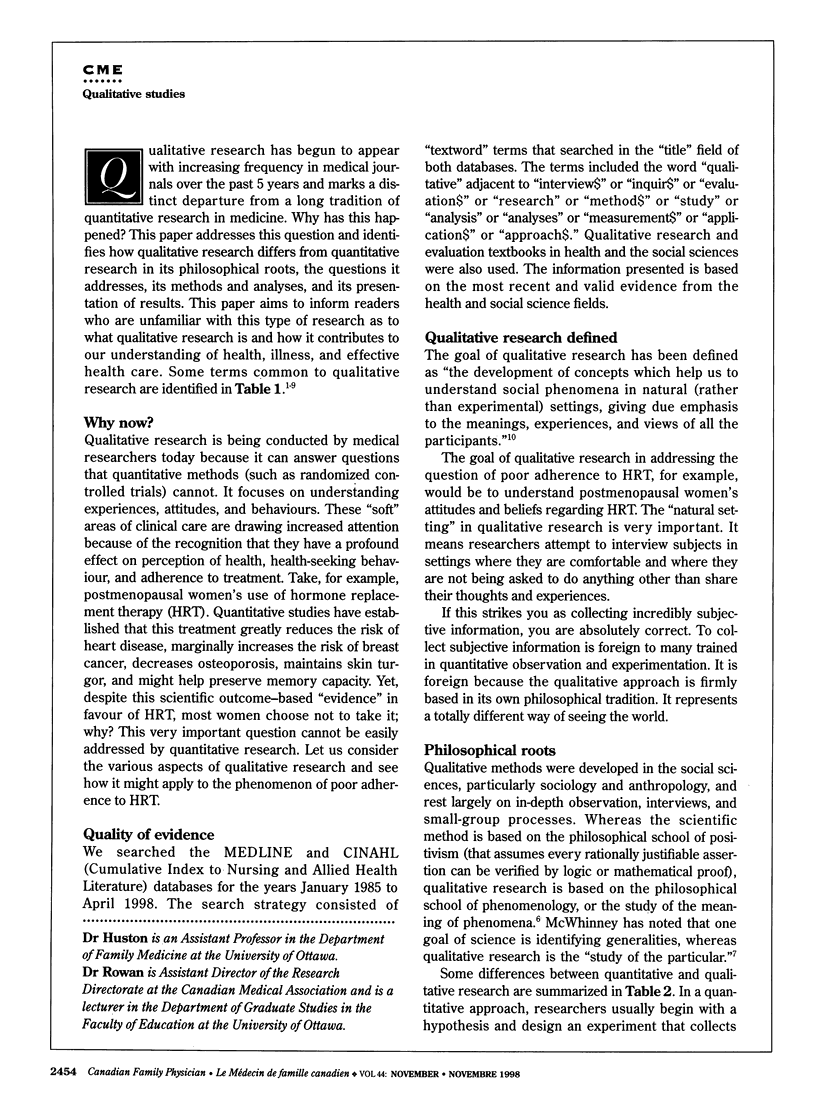
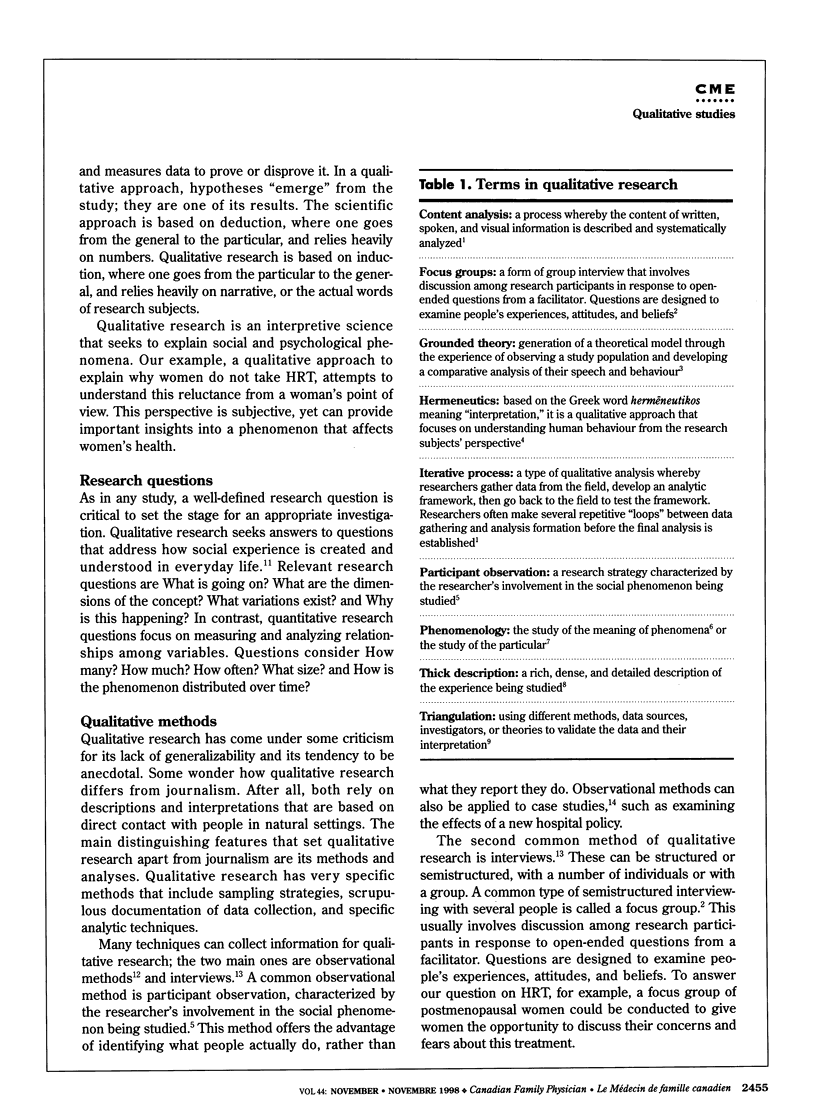
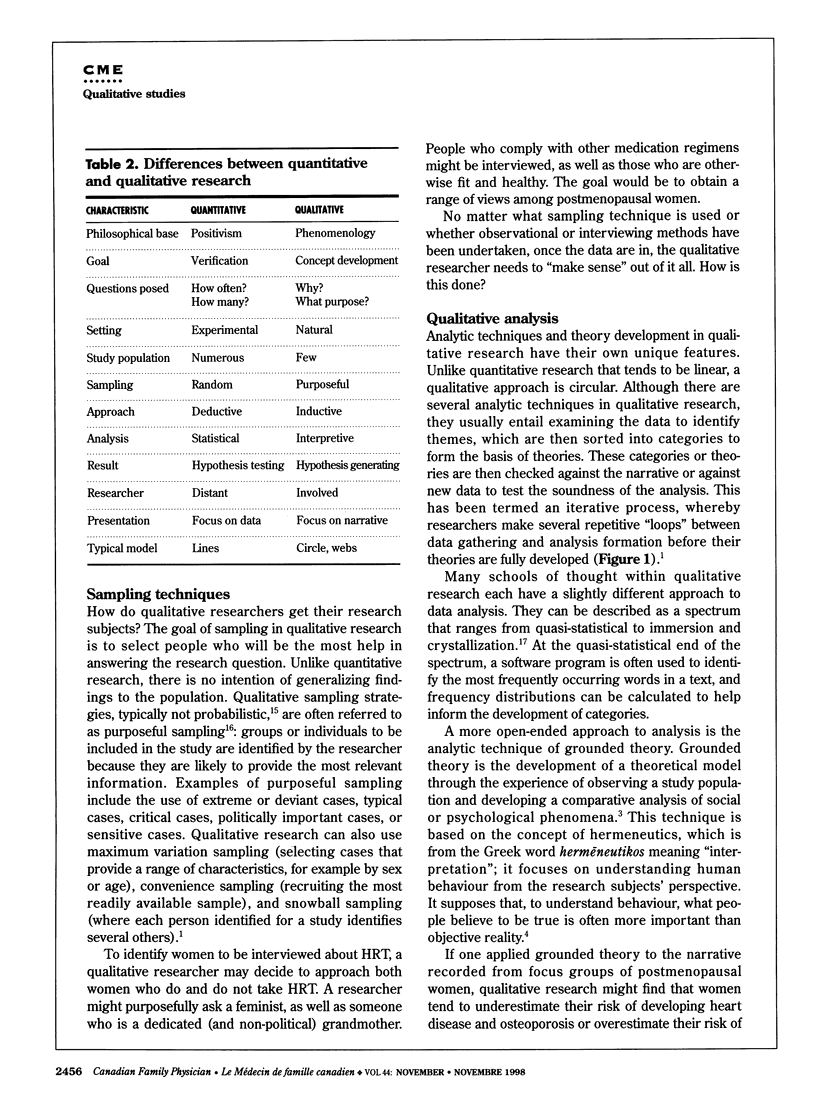
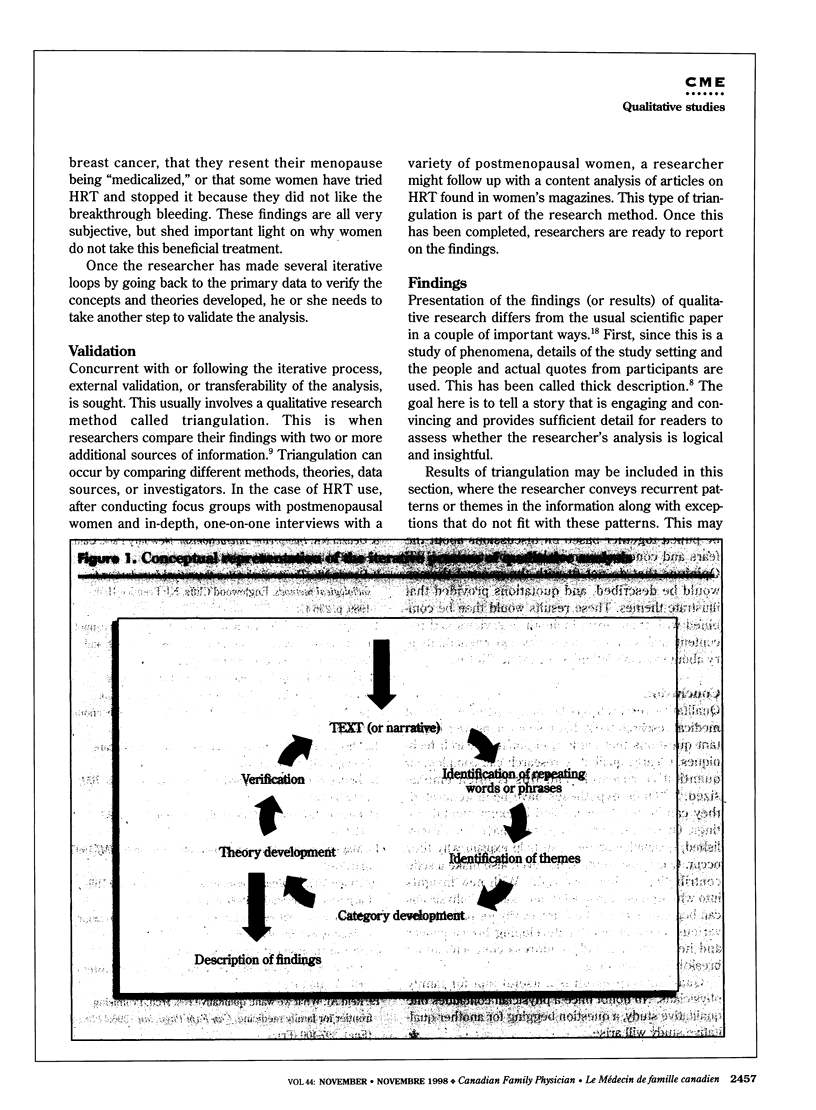
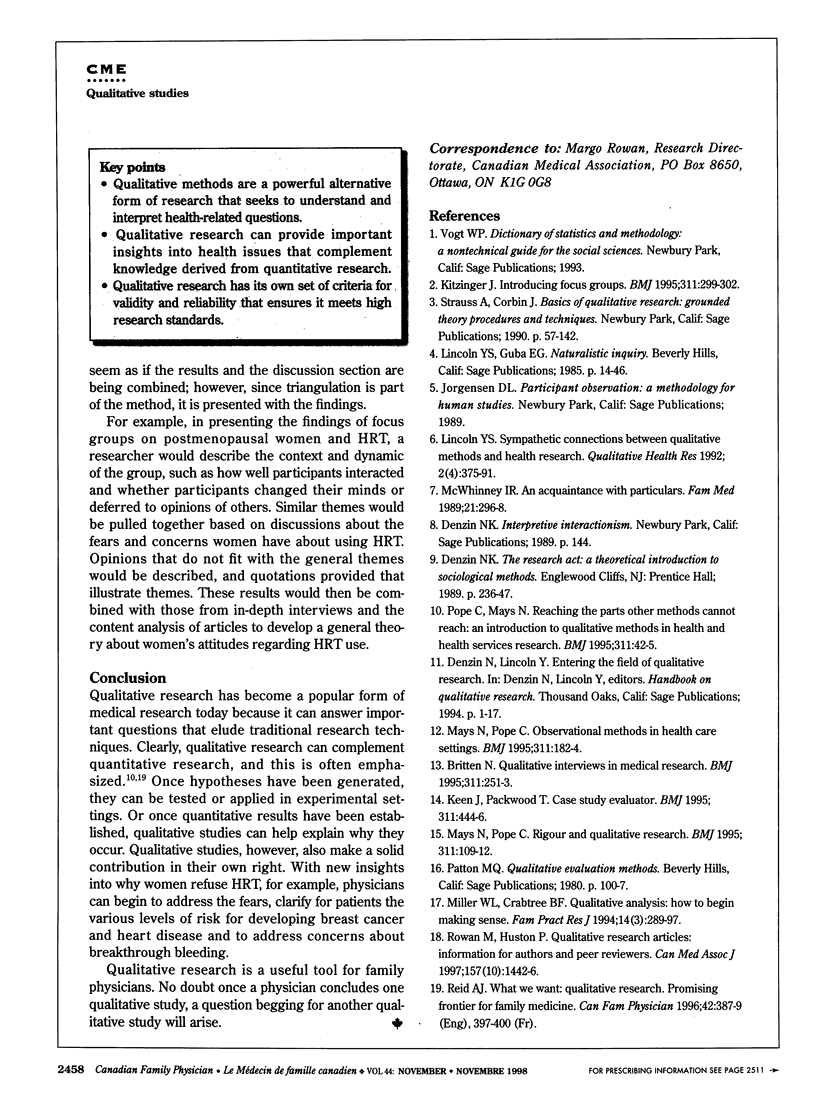
Selected References
These references are in PubMed. This may not be the complete list of references from this article.
- Britten N. Qualitative interviews in medical research. BMJ. 1995 Jul 22;311(6999):251–253. doi: 10.1136/bmj.311.6999.251. [DOI] [PMC free article] [PubMed] [Google Scholar]
- Keen J., Packwood T. Case study evaluation. BMJ. 1995 Aug 12;311(7002):444–446. doi: 10.1136/bmj.311.7002.444. [DOI] [PMC free article] [PubMed] [Google Scholar]
- Kitzinger J. Qualitative research. Introducing focus groups. BMJ. 1995 Jul 29;311(7000):299–302. doi: 10.1136/bmj.311.7000.299. [DOI] [PMC free article] [PubMed] [Google Scholar]
- Mays N., Pope C. Qualitative research: Observational methods in health care settings. BMJ. 1995 Jul 15;311(6998):182–184. doi: 10.1136/bmj.311.6998.182. [DOI] [PMC free article] [PubMed] [Google Scholar]
- Mays N., Pope C. Rigour and qualitative research. BMJ. 1995 Jul 8;311(6997):109–112. doi: 10.1136/bmj.311.6997.109. [DOI] [PMC free article] [PubMed] [Google Scholar]
- McWhinney I. R. 'An acquaintance with particulars...'. Fam Med. 1989 Jul-Aug;21(4):296–298. [PubMed] [Google Scholar]
- Miller W. L., Crabtree B. F. Qualitative analysis: how to begin making sense. Fam Pract Res J. 1994 Sep;14(3):289–297. [PubMed] [Google Scholar]
- Pope C., Mays N. Reaching the parts other methods cannot reach: an introduction to qualitative methods in health and health services research. BMJ. 1995 Jul 1;311(6996):42–45. doi: 10.1136/bmj.311.6996.42. [DOI] [PMC free article] [PubMed] [Google Scholar]
- Reid A. J. What we want: qualitative research. Promising frontier for family medicine. Can Fam Physician. 1996 Mar;42:387-9, 397-400. [PMC free article] [PubMed] [Google Scholar]
- Rowan M., Huston P. Qualitative research articles: information for authors and peer reviewers. CMAJ. 1997 Nov 15;157(10):1442–1446. [PMC free article] [PubMed] [Google Scholar]


